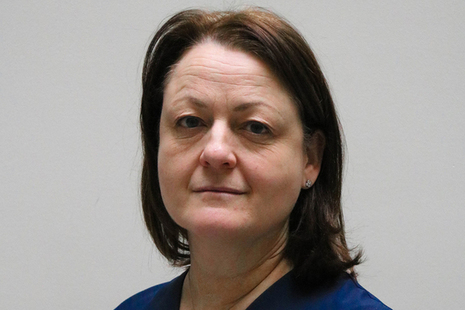London’s chief digital officer is set to be appointed imminently as authorities meet to discuss London data, according to Andrew Collinge, assistant director at the Greater London Authority.
The chief digital officer will report to the mayor of London at City Hall – Photo credit: PA
Speaking at a London Tech Week event at Camden Council’s St Pancras building, Collinge said that an announcement on the position could be expected “in a couple of weeks”.
He added that the GLA, 11 London boroughs and innovation agency Nesta were meeting today (21 June) to discuss further improvements in data sharing across the city’s local authorities.
His comments came as mayor of London Sadiq Khan confirmed his commitment to filling the role and increasing the use of data in the city.
Writing in City AM on 20 June to mark the start of London Tech Week, which is now in its fourth year, Khan said that during his term he would make sure that “data and innovative tech solutions can help deliver public services more easily and efficiently”.
Khan said that the chief digital officer would oversee these changes, as well as encouraging growth in the digital sector.
Meanwhile, London First, Centre for London and Bloomberg have published a joint paper setting out the role of London’s chief digital officer.
The paper says that the role should focus on three areas: providing policy advice and digital expertise, championing digital transformation across London government and finding and sharing best practice.
It stresses that the chief digital officer should report directly to the mayor, but that they should work across London government.
Initially, however, it says the new recruit will need to create a network of public and private sector digital, technology and information officers across the London boroughs in order to avoid duplicating existing work.
The report says that the chief digital officer must encourage innovation – for instance by setting open standards and requirements – as well as working to anticipate the impact of disruptive technologies.
They should also horizon-scan for early signs of opportunities or threats, and develop regulations, policy and legislation accordingly – this approach would avoid reactionary responses and allow London to stay ahead of global competition, the report says.
In addition, they should set an “ambitious standard of public service delivery that goes beyond digital by default” and ensure they work with all levels of government, including the blue light services, as well as private companies.
The report also calls on the London mayor to create an open data charter for London to set a standard for “clear, transparent and intelligent use of public data”.
At the Camden event, Collinge backed the call for better data sharing, describing London’s information as a “huge, if disorganised, data lake”.
“Public policy problems cross boundaries and data can help,” he said. “Across the boroughs there are a set of opportunities and challenges we’re better off addressing together.”
There are already a number of data-sharing initiatives in the capital. These include Transport for London’s digital strategy that makes live data available for free so it can be used by app developers, and the London Data Store, which is run by the GLA and provides free access to data-sets from the GLA as well as national statistics.
However, speakers noted that data-sharing could be improved individual local authorities, which often think in silos. Processes and systems that don’t make it easy to share data exacerbate this problem, they said.
One way of solving this issue is through the creation of an office for data, innovation and data analytics, an idea that has been mooted by a number of think tanks and lobby groups.
Collinge said that the 21 June meeting would discuss a pilot scheme to run across London.
The office is likely to be loosely modelled on New York’s Mayor’s Office of Data Analytics, which was set up in 2012 by the city’s first chief analytics officer, Mike Flowers.
Flowers, who will be attending the London meeting, also spoke at the Camden event, giving an overview of the New York office’s work.
His speech emphasised that, although technology was a part of the work, the main reason for the office’s success was organisational and about a shift in culture.
“Half the problem had to do with getting agencies to release data to each other,” Flowers said. “Public servants can be paranoid and don’t want to share information.”
He said that the team started by proving that data could help improve public services and save lives, giving the example of combining data on the locations of fires with information on buildings, which allowed the team to profile at-risk building and send fire inspectors there first.
“We didn’t spend any money until we had to,” he said. “Buying something doesn’t make you smart. You need to act on intelligence as a holistic asset.”
Flowers added that having the backing of the mayor was important to gaining buy-in across the authorities in the city, and also advised realism when thinking about data.
“Data is often set up to fail, because people see it as a panacea,” he said. “Embrace reality enough to know it’s not always a solution.”



